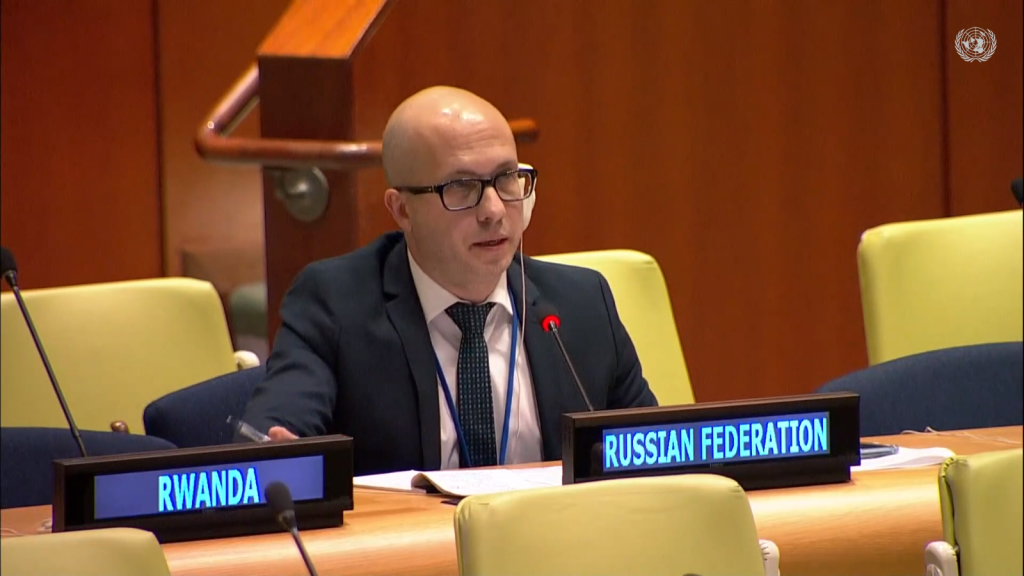Statement by representative of the Russian Federation Mr.Evgeniy Varganov at informal UNGA interactive dialogue on commodity markets
Mr. Chair,
Unfortunately, instead of a professional dialogue, we hear unsubstantiated allegations that divert attention from the underlying causes of the current situation on the world markets.
Diversification of national economies requires infrastructural and technological development, which is impossible without an access to financial resources, in particular, to foreign direct investments.
Unfortunately, recently, it is precisely the provision of access to finance and technology that has become an instrument of sanctions pressure from the Western countries. Moreover, Russia is now accused of having provoked the food and energy crises. This is not true. We are convinced that cancellation of unilateral coercive measures imposed on our country will relieve tension in transport, logistics and financial connectivity, ensure our uninterrupted supplies and stabilize international commodity markets.
As long as the United States and its allies do not stop using such levers to advance their own geopolitical agenda, a sustainable structural transformation of developing economies is out of question.
Mr. Chair,
The Russian Federation shares the concerns about global climate change and the idea that energy transition is needed. All advanced countries, including Russia, have already confirmed their intention to achieve carbon neutrality by the middle or in the second half of the 21st century. In Russia, we have launched the first projects aimed at achieving carbon neutrality in certain regions. The largest Russian companies have also set their corporate climate goals, including goals to achieve carbon neutrality.
At the same time, developed countries are persistently promoting their own recipes for decarbonization through complete refusal from fossil fuels and forced adoption of renewable energy sources. International financial organizations are raising the issue of stopping financing projects that imply the use of fossil fuels. But the achievement of the SDG 7 is still not possible without the use of the traditional sources of energy. In this situation, developing countries lose their opportunities to access financial resources.
At the same time, the Western countries are cutting investment in fossil fuels, thereby artificially reducing supply in the global energy market. This leads to speculative price fluctuations in commodity markets, which negatively affects both their consumers and their producers. The most vulnerable and poorest countries are hit hardest.
We believe that energy transition issues should not be based on the priorities and approaches of a small group of countries. All states, especially developing ones, should be fully involved in the climate agenda development.
Thank you.
